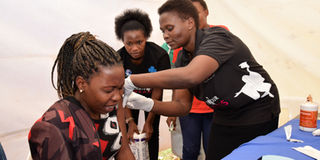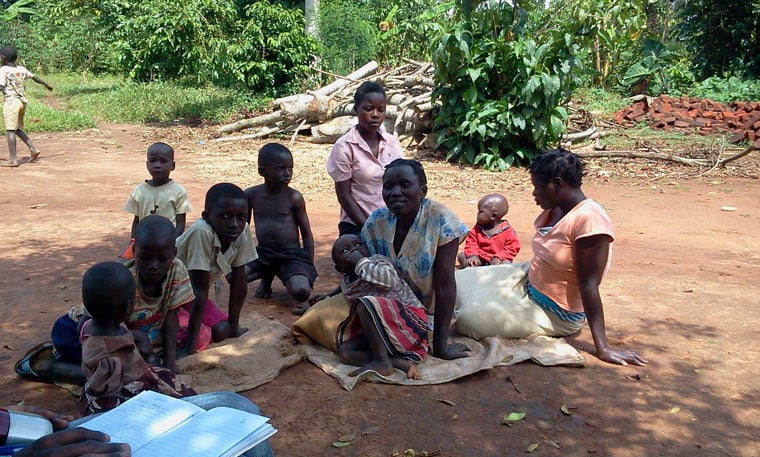Prime
Health practitioners want increased contraceptives use awareness in varsities

Nkumba university students take part in the campaign aimed at creating more awareness about proper use of contraceptives
What you need to know:
- Most female students at institutions of higher learning are reportedly sexually active but many cannot access better use of preventive measures against unwanted pregnancies
A section of health practitioners in the country have asked government to increase awareness campaigns about the use of contraceptives among girls in university and tertiary institutions so as to protect themselves against unwanted pregnancies.
Most female students at institutions of higher learning are reportedly sexually active but many cannot access better use of preventive measures against unwanted pregnancies.
At least three out of 10 girls have got unwanted pregnancies and many end up dropping out of school.
‘”Many young people are not given advise on proper preventive measures and ended up messing with their health, “Dr Resty Nalwanga, a clinical officer said during the launch of a campaign dubbed “Achieve your dreams” at Nkumba university.

The campaign targets 10,000 female students.
According to doctors from one of the nonprofit support organizations, Family Medical Point in Entebbe, proper use of contraceptives will reduce on concerns about unplanned pregnancies.
“The campaign will spread to the rest of other institutions after Nkumba and communities will be considered with the campaign.
At least over 100 students participated in the launch and we are happy about the turn up“, Amon Eunice, the orgniasation’s communications officer said.
With a median age of just 15, Uganda has the second youngest population in the world with nearly half of the 44.5 million people under the age of 18 years. Uganda’s 2016 Demographic and Health Survey (DHS) found that nearly 25 percent of teenage girls had already begun childbearing, with the percentage increasing to 53.9 percent among girls in their late teenage years (18-19 years).
The reproductive health indicators show that there is a low contraceptive use in Uganda – 39 percent, with unmet need for contraceptives at 28 percent.

Uptake of modern contraceptives is limited due to myths and misconceptions about family planning, cultural taboos which restrict young people, particularly girls, religious beliefs, limited availability of contraceptives and hostility towards young people at public facilities.
Dr Nalwanga said adolescents and young adults are particularly at risk of unintended pregnancy, as Contraceptive Prevalence Rate is lowest amongst unmarried young people of ages 13–24, standing at only 11 percent—a serious concern and contributor to the ever rising teenage pregnancies in Uganda




